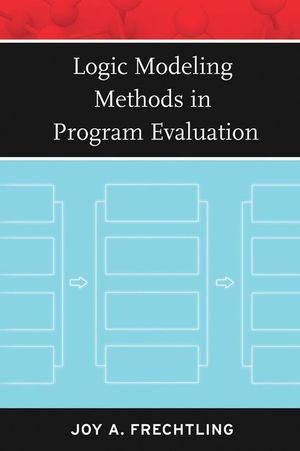|
Textbook
Logic Modeling Methods in Program EvaluationISBN: 978-0-7879-8196-9
Paperback
160 pages
March 2007, ©2007, Jossey-Bass
 This is a Print-on-Demand title. It will be printed specifically to fill your order. Please allow an additional 10-15 days delivery time. The book is not returnable.
|
||||||
Logic Modeling Methods in Program Evaluation’s comprehensive approach:
· Shows how the logic model can be used to clarify assumptions, reach group consensus, and bridge between various disciplines;
· Identifies the specific components of logic modeling and discusses inputs, activities, outputs, short and long-term outcomes, contextual factors, and optional components and variations;
· Focuses on the critical role of consensus in the development of a logic model, including factors such as teaming, timing, and collaborative learning;
· Explores issues such as the most common mistakes in the development and implementation of logic models and the use of logic models in projects with different levels of complexity or different durations;
· Discusses how the logic model can be used to identify the range of outcomes to be examined and how summative questions can be prioritized;
· Includes a variety of illustrative case studies of simple, multi-year, and complex projects and demonstrates the use of the logic model to establish project goals and evaluate the project’s outcome.



